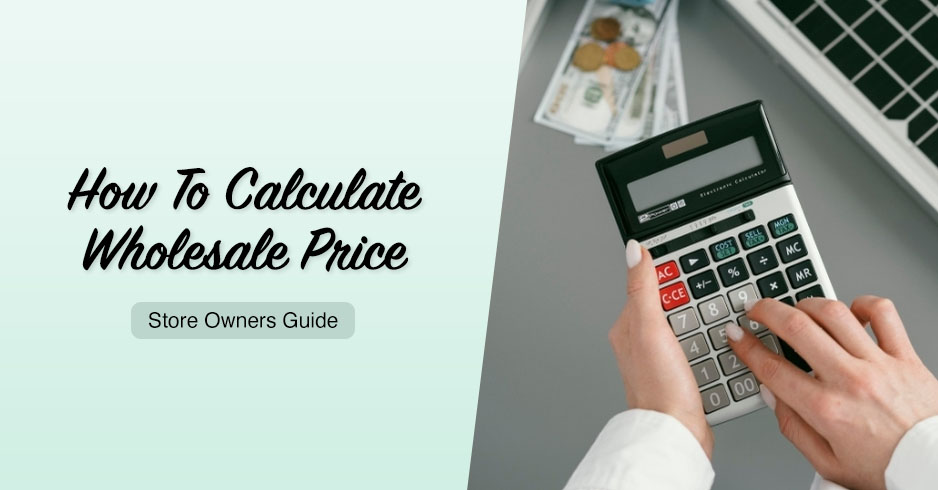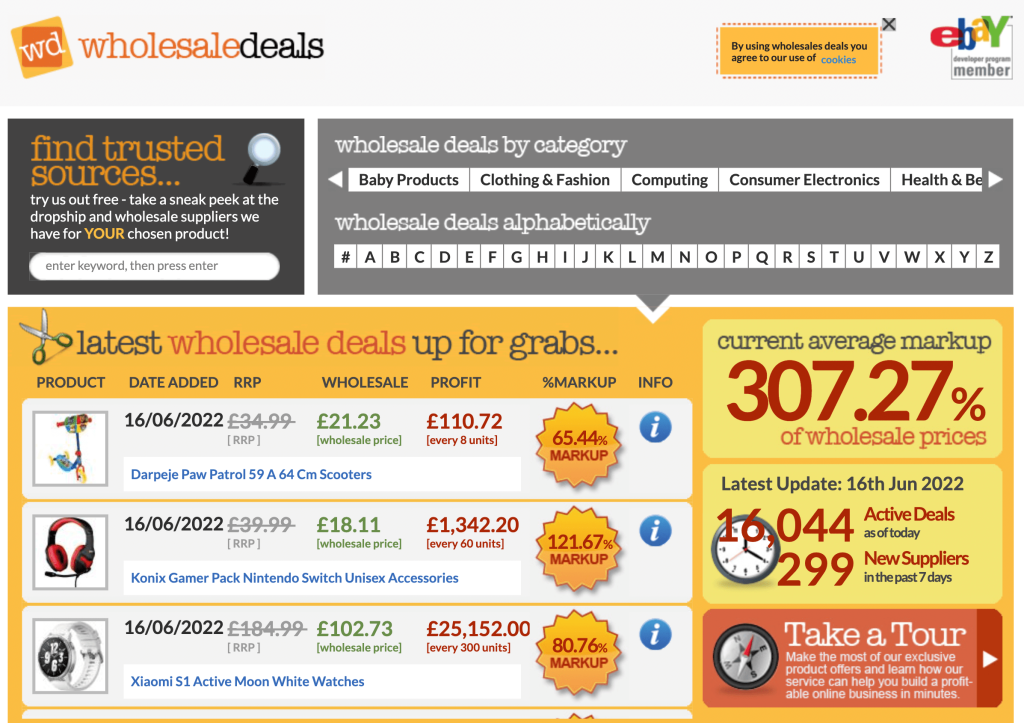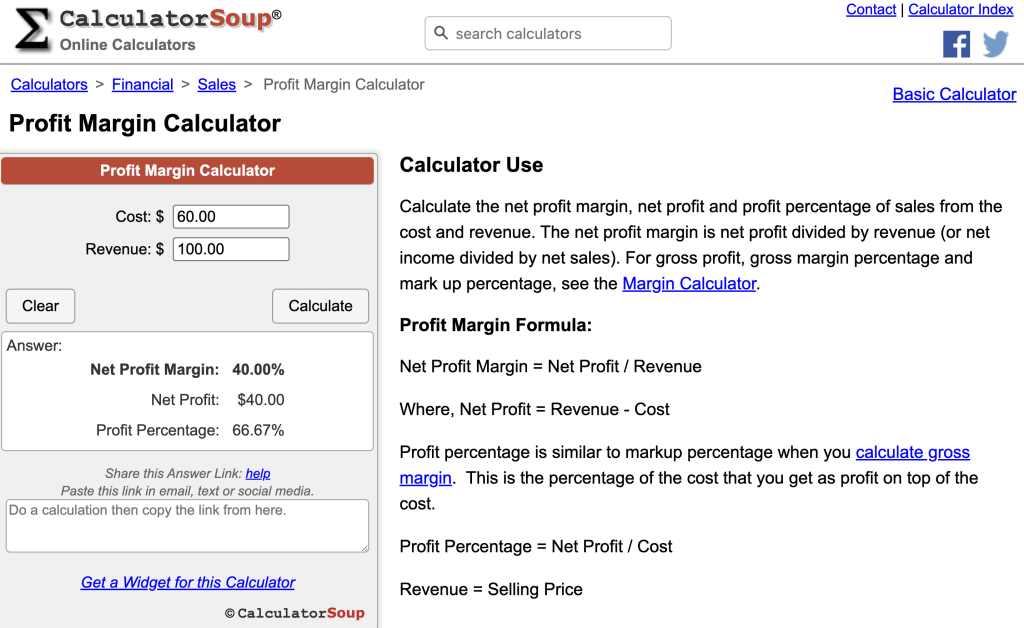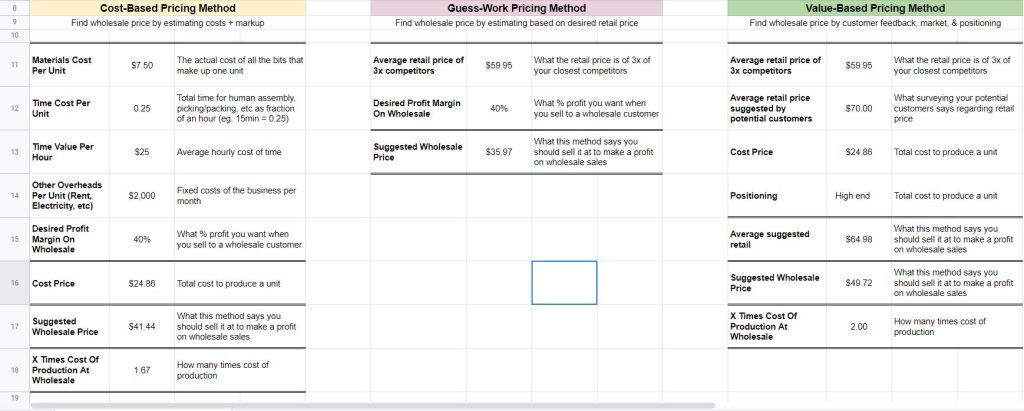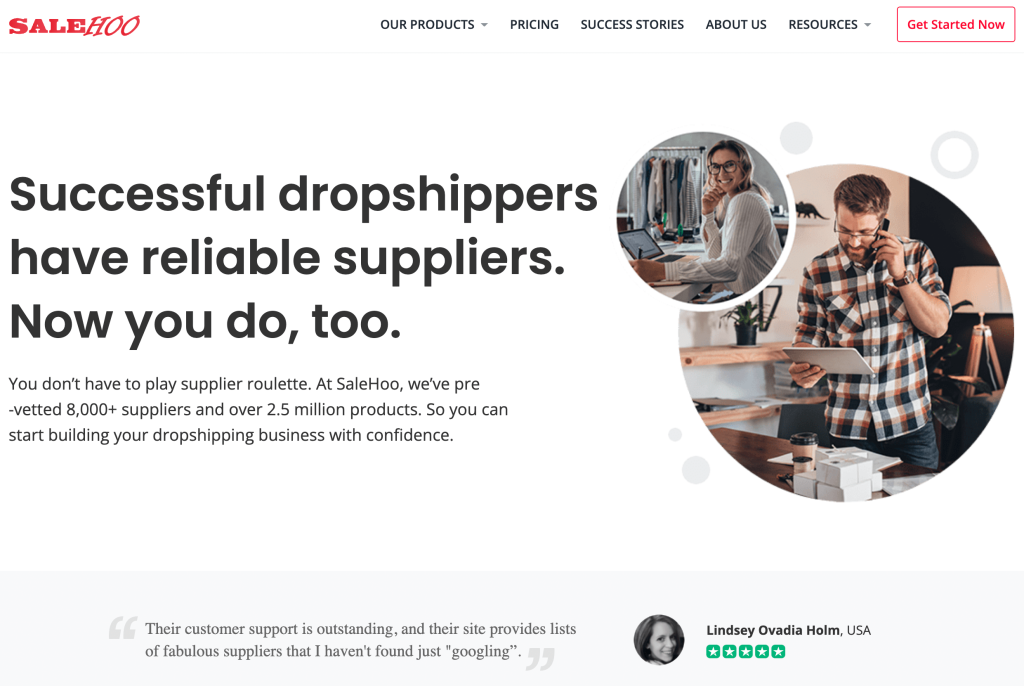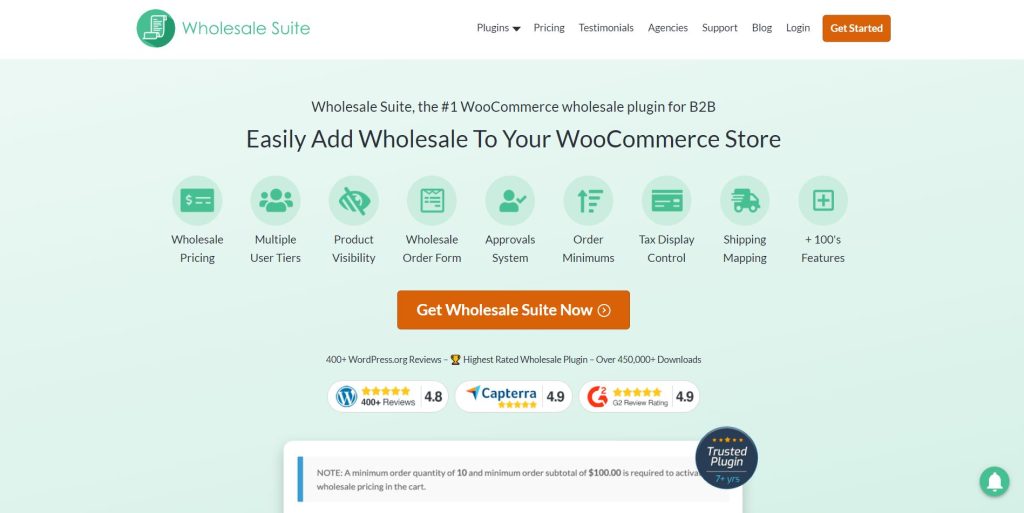
Starting a wholesale business can be both scary and exciting. You may have a great idea in mind, but if you have little experience with e-commerce or wholesaling, you might be feeling a bit lost.
Fortunately, online wholesaling is relatively straightforward. As long as you carefully consider a few key factors like profit margins, shipping, and suppliers, you can set up a solid business with lots of growth potential.
In this post, we’ll explain the basics of wholesaling. Then, we’ll go over five essential factors to consider when starting a wholesale business. Finally, we’ll show you how Wholesale Suite can make launching and running your store a breeze. Let’s get started!
A Brief Overview Of Wholesale Businesses
Wholesale businesses sell products in large volumes at a discounted price. These sales can be made to businesses such as retailers or individual buyers. This differs from standard retail companies, which sell items in small quantities at full price to end consumers.
Thus, one of the main reasons starting a wholesale business may be preferable is that it allows you to sell more products. This results in a much higher average order value compared to traditional retail.
Another benefit of wholesaling is that customers tend to be very loyal, especially if you offer a high-quality product and excellent customer service. Since repeat customers are so common, this means you likely won’t need to put as much effort into marketing.
While there are tons of benefits to wholesaling, there are a few downsides. Primarily, you’ll need to consider where to store all your products. Since you’ll be selling in bulk, you’ll need a lot of stock.
Online wholesalers can avoid this issue entirely by opting for dropshipping. However, if you’re starting a wholesale business with a physical location, you’ll likely need a lot of space.
5 Key Factors To Consider When Starting A Wholesale Business
Now that you know a bit more about wholesale businesses and why you may want to start one, let’s take a look at five key factors to consider before you do.
1. Know your profit margins
Your profit margin (or profitability) is the percentage of revenue that isn’t spent on business costs. This cost/revenue ratio demonstrates how well a business is achieving its objective of making money.
Profit margins are arguably the single most important factor for businesses, especially for those that sell wholesale products. This number is an excellent measure of the amount of money you earn, but once you know it, it can also help you set prices, identify goals, and plan ahead.
Understanding your ideal profit margin can help ensure you are ordering stock in the most cost-effective way possible. If you’d like some help finding this number, you can use a simple profit margin calculator to give you a sense of your projected costs versus revenue.
Then, you can consider whether your business is producing enough profit to satisfy your needs as the owner. If this is not the case, you should probably take a look at ways to improve your profit margins. Usually, the most effective way of doing this is to reduce expenses. A healthy profit margin for a small business is typically 7-10 percent.
2. Shipping considerations when starting a wholesale business
As a wholesale business, it’s crucial that you get orders to customers as quickly as possible without risking damage to the items. If you fail to get shipping right, there’s a strong possibility that you’ll lose customers and have to deal with a lot of complaints.
Some of the most common issues when shipping orders to customers are lost items, delays, and damaged goods. While you may not have direct control over most of these issues, there are ways you can help mitigate them.
For example, you’d be wise to research your options and select a quality shipping company, rather than choosing the cheapest option. Even though it may be frustrating to have to charge more for shipping, keeping your customers happy is likely worth it.
It may also be a good idea to invest in durable packaging options. Again, this may add to your expenses, but it’s probably a worthwhile investment if you can afford it. Even the best shipping providers damage packages at times, so improving the durability of your initial packaging can help reduce this as well.
Another way to keep customers satisfied with shipping is to give them the option to choose a provider and delivery method. This somewhat takes the responsibility out of your hands and gives customers the ability to choose the provider that they prefer.
3. Wholesale and trade pricing
Similar to profit margins, pricing is part of your business’s core objective of making money. Setting optimal prices is vital for achieving as many sales as possible.
To help you set prices for your business, Wholesale Suite has made a free wholesale price calculator. It’s a simple-to-use spreadsheet that lets you enter a few metrics to find the best price for your market:
The tool has three options of wholesale price setting strategies. One method is to simply add markup based on your desired profit margins. This is called “cost-based pricing.” It can be a good choice if your product is in high demand and you’re confident you can make plenty of sales regardless of the price.
You could also use the “guess-work pricing” method, which lets you find the wholesale price by looking at an estimation of the desired retail price. This technique offers good value to the customer, but may not be consistent with your financial needs.
The final pricing option is “value-based pricing.” This requires a bit more research and considers multiple factors. This makes it the most reliable of the three options. To calculate wholesale prices with this method, you’ll need to know the average retail price, customer retail price, cost price, and more.
4. Inventory and warehousing considerations when starting a wholesale business
Inventory refers to all the items your business owns, including any property, products ready for delivery, and raw materials. As a wholesale business, your inventory mainly consists of products that are yet to be shipped off to customers. The most common way to store these items is in a warehouse, which is simply a building used solely for storing goods.
While warehousing is an excellent strategy for those who can make a large capital investment, many new wholesalers don’t have this option. If this is the case, you’ll need to consider alternative options for storing inventory.
Dropshipping has become a popular alternative in recent years. This involves storing goods with either the manufacturer or a third-party provider who then ships orders directly to customers. This is a much more cost-effective solution. However, it often sacrifices the quality and efficiency of deliveries.
Another option is to store inventory in your home. This is usually out of the equation for larger companies, but if you’re a small business that has a spare garage or shed on your property, you could distribute orders from there.
5. Suppliers
As a wholesaler, you probably don’t plan to manufacture your goods. Therefore, suppliers will be providing you with your product. If you want your business to succeed, it’s crucial that you work with high-quality suppliers only.
Depending on your store’s catalog, you might work with just one or a handful of suppliers. However, it might be wise to limit your suppliers. This way, you don’t have to juggle too many professional relationships and you can establish a sense of trust.
Naturally, you’ll want to consider whether a supplier’s rates will work well with your budget. However, if you are dealing with luxury products, you might want to make sure your suppliers are working with only the best raw materials.
Either way, you’ll want to maintain a good level of communication with all of your suppliers. Ultimately, they have a huge impact on your customers’ level of satisfaction.
You might even consider using a service that allows you to find pre-vetted suppliers in a directory list, like SaleHoo.
However, keep in mind that if you’re unhappy with your supplier, you can always find a new one. While this may be tricky, it will likely be worth it in the long run. If you need to leave a particular supplier at any point, just make sure you have enough inventory to fulfill current orders. You’ll also need to update your product list right away so you aren’t advertising products you can no longer provide.
Starting A Wholesale Business The Easy Way With Wholesale Suite
Conducting all of your business online can make your wholesaling experience even better. This way, you won’t have to deal with the added stress of managing a brick-and-mortar location. If you know you’d like to stick to the web, you’ll likely need top-notch business management software.
You may want to consider using our plugin, Wholesale Suite. This is a WooCommerce-compatible tool that enables you to manage your online wholesale business from your WordPress dashboard. In a nutshell, it allows you to streamline your wholesale business processes with ease:
One of Wholesale Suite’s main features is its sophisticated pricing management tool. It lets you set multiple levels of wholesale discounts, bulk pricing, and more. The plugin also allows you to easily create minimum purchase rules based on quantities or subtotals.
To get started using Wholesale Suite, you can head over to the pricing page and select the bundle that best suits your needs. Follow the prompts to create your account and get the plugin installed on your WordPress site.
Then, you can begin creating your wholesale business or simplifying your pre-existing operations and procedures. We recommend you start by optimizing some of the factors we discussed earlier in this article, such as pricing and shipping. After that, you can move on to scaling your business further with features like lead capture and user-friendly order forms.
Conclusion
Launching a wholesale company can be intimidating at first. However, it’s a profitable business model that’s likely worth your time. Moreover, with the right tools, you can create your online wholesale store quickly and affordably.
To review, here are five important factors to consider when starting a wholesale business:
- Profit margins: Calculate your desired profit margin to help you manage costs.
- Shipping: Research the best shipping company and offer customers flexible delivery options to ensure orders arrive quickly and undamaged.
- Pricing: Establish pricing using the cost-based, value-based, or guess-work model.
- Inventory and warehousing: Depending on your needs, decide whether warehousing or dropshipping is best for you.
- Suppliers: Choose reliable suppliers that produce high quality products at an affordable price.
Do you have any questions about starting a wholesale business? Let us know in the comments section below!

